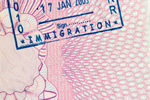Maintaining a healthy lifestyle as an expat in France

Maintaining a healthy lifestyle as an expat in France
According to several recent surveys, France’s work/life balance is as good as it gets, with plenty of time to enjoy the country’s many charms and world-famous cuisine. However, moving to the unfamiliar, especially when another language must be learned, can cause a great deal of stress as well as preventing newly arrived expats from adjusting to the inevitable lifestyle changes.
You may believe life in France is all about bingeing on delicious food, drinking gallons of fine wine and becoming overweight and unhealthy as a result. Nothing could be further from the truth as long as you learn to eat like the French. The first thing you may notice is that portions are far smaller than in British restaurants and a fraction of the size of the average American meal. Snacking isn’t a problem either, as most French people simply don’t do it. Interestingly, there’s no French phrase for ‘I’m full’, with the commonly used term being the French equivalent of ‘I’m no longer hungry’.In the French culture, mealtimes are at specific hours in the day, even for children, and eating slowly means more enjoyment of the flavours as well as being good for health. In other words, the French lifestyle as regards eating prefers moderation rather than excessive consumption and is reflected in France’s very low obesity rates, especially when compared with the USA’s rate.
The French top up their health by encouraging an active lifestyle, with walking rather than driving short journeys, cycling to work, jogging, swimming and playing sports. France’s work/life balance is obvious in everyday life, with time taken out for lunch, a 35-hour working week and a slow, gentle start to mornings. Five weeks’ paid holiday a year gives time to relax and enjoy, and French healthcare embraces healthy living as well as providing medical and surgical answers for those who don’t take care of their bodies. The French healthcare system is world class and is partly state funded via employee and employer taxes, although three months’ official residency is required from expats before they can use it. Private health insurance is the choice for many expats, simply to cover the percentage of treatment costs not provided by the government.
Related Stories:
- Expats find peace in the covid-19 refuge of Dahab town - July 20, 2020
- Expats in Malaysia still banned from overseas travel - July 17, 2020
- HSBC Asia to cut back on internal expat relocations - July 16, 2020
- China hits its expats with 45 per cent tax on overseas earnings - July 15, 2020
Latest News:
- Tips on a trouble-free relocation as an expat overseas - July 20, 2020
- Expats find peace in the covid-19 refuge of Dahab town - July 20, 2020
- Is Kuwaitization the unintended result of the oil price crash? - July 20, 2020
- Expats unhappy abut changes to Korean points-based visa system - July 17, 2020
- Chiang Mai and Bangkok no longer bargain locations for expats - July 17, 2020
- Expats in Malaysia still banned from overseas travel - July 17, 2020
- Vietnam welcomes expats to its safe, affordable lifestyle - July 16, 2020
- Asian tiger economies reach out to expats in Hong Kong - July 16, 2020
- HSBC Asia to cut back on internal expat relocations - July 16, 2020
- Tips on integrating for newly-arrived expats - July 15, 2020


